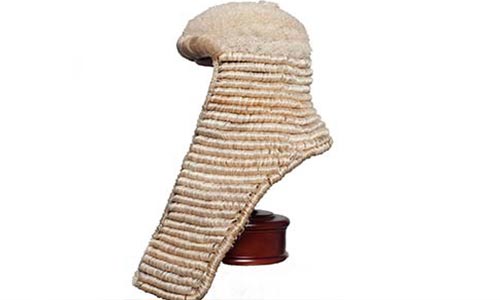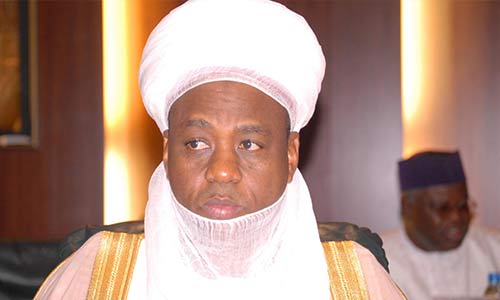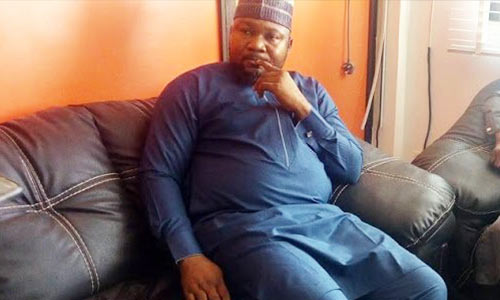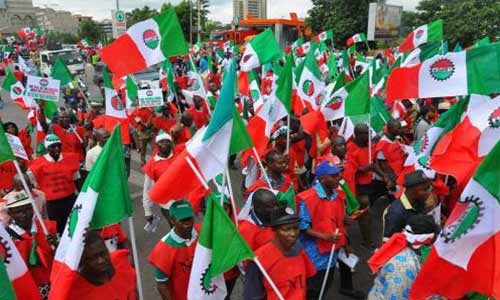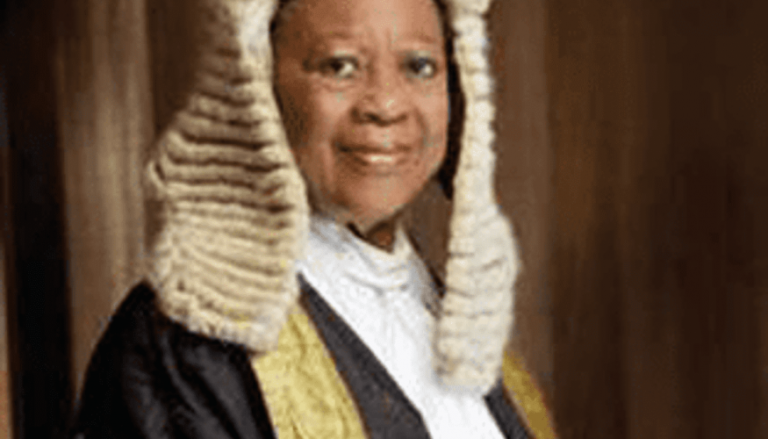By Daniel Akinyami and Zainab Hassan
Tax planning refers to an arrangement of a taxpayers’ business or financial dealings, in such a way that complete tax benefit can be availed by legitimate means, i.e. making use of all beneficial provisions and relaxations provided in the tax law, so that the incidence of the tax is minimum[i]. Tax planning helps to achieve a reduction in tax liabilities. This means that a taxpayer can save the maximum amount of tax, by properly arranging his/her operations as per the requirements of the law, within the framework of the statute. The legal basis for tax planning in Nigeria can be seen in the case in G.M. Akinsete Syndicate v Senior Inspector of Taxes, Akure [ii] where the supreme court recognized that a person may use lawful means to avoid tax; what he may not do is to try to evade tax. This attitude of the Nigerian courts towards tax planning can be traced to Lord Clyde’s decision judgement in the case of Ayrshire Pullman motor Service v IRC[iii] where he held that:
“… The Inland Revenue is not slow – and quite rightly – to take every advantage, which is open to it under the taxing statutes, for the purpose of depleting the taxpayer’s pocket. And the taxpayer is, in like manner, entitled to be astute to prevent, so far as he honestly can, the depletion of his means by the Inland Revenue.”
Nigerian courts have also followed the decision in Duke of Westminster v CIR[iv] where Lord Tomlin pronounced that “Every man is entitled, if he can, to order his affairs so that the tax attaching under the appropriate Acts is less than it otherwise would be”. There are different types of tax planning which include short-range and long-range tax planning, permissive tax planning and purposive tax planning. Transfer Pricing is a type of permissive tax planning as this sort of planning is made as per the expressed provision of the taxation law.
Tax in Nigeria, on the federal level, is controlled by the Federal Inland Revenue Services and companies are to pay 30% of total profits of a company’s less allowable deductions according to the company’s income tax act. The FIRS must then make sure that in as much as people are allowed to plan their taxes to their advantage, they do not use it as a way of avoiding tax or defrauding the FIRS. The competing interest of companies in ensuring that they do not pay more than the barest amount in tax remittances and the states drive to increase their internally generated revenue especially as a result of globalization has necessitated the need for Revenue Services to become adept in monitoring cross border transaction especially transactions by related entities.
TRANSFER PRICING
Transfer pricing is the setting of the price for goods and services sold between controlled (or related) legal entities within an enterprise[v] Transfer pricing can be used as a profit allocation method to attribute a multinational corporation’s net profit (or loss) before tax to countries where it does business. Transfer pricing results in the setting of prices among divisions within an enterprise. Transfer pricing can be of advantage to taxpayers but most regulatory bodies frown upon using transfer pricing as it is commonly used as a method of tax avoidance. Companies can book profits of goods and services in a different country that may have a lower tax rate. In some cases, the transfer of goods and services from one country to another within an interrelated company transaction can allow a company to avoid tariffs on goods and services exchanged internationally. To avoid this issue, the arm’s length principle was established.
THE ARMS LENGTH PRINCIPLE
The arm’s length principle of transfer pricing states that companies or businesses that are related to one another must make sure to charge themselves for goods and services provided as if they are unrelated. As the name implies, such companies are to transact at “arm’s length”, that is, giving no regard to the fact that they are related. The regular price which is on the open market is what related companies would charge themselves for goods and services provided.
The OECD model tax convention explains the situation where the tax authorities may correct an enterprise’s account to reflect the arm’s length principle.
Article 9 of the OECD model tax convention provides that
- Where
- a) an enterprise of a Contracting State participates directly or indirectly in the management, control, or capital of an enterprise of the other Contracting State,
or
- b) the same persons participate directly or indirectly in the management, control, or capital of an enterprise of a Contracting State and an enterprise of the other Contracting State, and in either case, conditions are made or imposed between the two enterprises in their commercial or financial relations which differ from those which would be made between independent enterprises, then any profits which would, but for those conditions, have accrued to one of the enterprises, but, because of those conditions, have not so accrued, may be included in the profits of that enterprise and taxed accordingly.
This paragraph explains that the taxation authority has the right to rewrite the account of an enterprise if the account does not reflect the true taxable profit because of the close relationship that might exist between the two contracting parties. Enterprises, no matter how closely knitted they are must transact as they would have with an enterprise, they have no relationship with.
- Where a Contracting State includes in the profits of an enterprise of that State —and taxes accordingly — profits on which an enterprise of the other Contracting State has been charged to tax in that other State and the profits so included are profits which would have accrued to the enterprise of the first-mentioned State if the conditions made between the two enterprises had been those which would have been made between independent enterprises, then that other State shall make an appropriate adjustment to the amount of the tax charged therein on those profits. In determining such adjustment, due regard shall be had to the other provisions of this Convention and the competent authorities of the Contracting States shall if necessary, consult each other.
This explains that the situation envisaged in paragraph 1 may lead to double taxation since the account of the enterprise in state A has been revised to reflect the profit which would have already been calculated as profit in state B. In such a case, state A is paying tax on the amount of profit which has already been taxed from state B and in this instance, state B has to adjust to relieve double taxation[vi]
In conforming with International standards the Federal Inland Revenue Service (Establishment) Act 2007 Income Tax (Transfer Pricing) Regulations 2018[vii] was enacted and Regulation 4(2) defines the arm’s length principle as “a controlled transaction is at arm’s length if the conditions of the transaction do not differ from the conditions that would have applied between independent persons in comparable transactions carried out in comparable circumstances”. This provision is clear as to what the arm’s length principle is to achieve. Regulation 4(3) goes further to reiterate the position of article 9(1) of the OECD model tax convention.
The arm’s length principle solves the problem that may come with transfer pricing as enterprises may try to use transfer pricing as a way of evading tax. This principle makes sure that a company’s profit is not being moved from one country to another to prevent the taxation authorities of a particular country from taking what it should normally take as tax. It ensures that profit stays where it should be and the tax on such profit is paid to the tax authority of the appropriate place.
MAJOR FEATURES OF TRANSFER PRICING REGULATION
- A broad definition of connected persons; According to Regulation 12, the level of influence over the financial, commercial, or operational decisions of an entity is what determines a connected entity. The regulation incorporates the definition of connected persons as used in Companies Income Tax Act, Petroleum Profit Tax Act, Personal Income Tax Act, Capital Gains Tax Act, Organization of Economic Cooperation and Development, and the United Nations Tax Conventions. The regulation enables the Service to adjust the profits resulting from related party transactions (e.g. sale or transfer of assets, provision of services, financial arrangements, etc.) to reflect market price.
- According to Regulation 13, the regulation requires a connected person to make a declaration on its relationship and transactions with entities within or outside Nigeria within 18 months of the company’s incorporation and Updated declarations are required in the event of Mergers & Acquisitions. While Regulation 14 provides that Disclosures are required for controlled transactions failure to declare properly attracts fines.
- Regulation 5 provides that Where the price of commodities are quoted for importation or exportation the Service will compare them with those listed on the international or local commodity, it provides further that in the case of exports and a higher price is quoted it will be deemed as the price agreed between the parties. This means that taxpayers must show that the adjustments made are appropriate otherwise the Service will use a commodity exchange to determine an appropriate arm’s length price concerning the imported commodity. This Regulation places the burden on the taxpayer to prove that the pricing was reasonable within the context of the transaction. The Service will independently review prices of imported goods as prices applied for customs valuation purposes will not automatically be accepted by it as arm’s-length prices for Transfer Pricing purposes.
The Transfer pricing methods which Regulation 5 specify include;
- The Comparable Uncontrolled Price (‘CUP’) method;
- The Resale Price method;
- The Cost Plus method;
- The Transactional Net Margin method;
- The Transactional Profit Split method;
These methods are only used where appropriate and special consideration is given to the strength of the method, available information, and degree of comparability. Transactions that are in continuum will be classified as one to carry out the comparability analysis.
Concerning the Services rendered, where such service is charged, confers a benefit, relates to uncontrolled transactions, and is capable of being measured the arm’s length principle must be employed.
The right to use intangibles is made dependent on the contractual arrangements and the following factors concerning the Development, Enhancement, Maintenance, Protection And Exploitation (DEMPE) of the intangible asset will determine if the arm’s length principle was observed (a) functions performed by the person; (b) management and control of those functions; (c) contribution by the person of assets, including financial assets, (d) management and control regarding the contribution of assets, including financial assets; (e) risks assumed by that person; and (f) management and control of those risk. Also, the Regulation provides that where there is a transfer of rights in an intangible asset, tax deductions for any payments for the exploitation of those rights will be capped at 5% of earnings before interest, tax, depreciation, and amortization (EBITDA).
4. Regulation 16 places an obligation on connected persons to prepare a Master File and Local File as part of their annual Transfer Pricing documentation containing sufficient information and data with an analysis of such information and data to verify that the pricing of controlled transactions is consistent with the arm’s length principle. Regulation 17 provides an option to prepare a transfer pricing documentation for connected persons with total related party transaction values less than NGN 300 million to prepare annual documentation. However, connected persons exercising that option must prepare and submit the documentation within 90 days, upon request from FIRS
Where a Tax Payer is not satisfied with the decision of the Service such Taxpayer may seize the Decision Review Panel (DRP) through an objection within 30 days to the Service.
Penalties for non-compliance with the regulation include;
- Failure to file at declaration – NGN 10 million in the first instance and ₦10,000 for everyday failure continues.
- Failure to file an updated Transfer Pricing declaration/provide notification about directors – NGN 25,000 for every day in which the default continues.
- Failure to file a Transfer Pricing disclosure – the higher of NGN 10 million or 1% of the value of related party transactions not disclosed; and NGN 10,000 for every day in which the default continues.
- Incorrect disclosure of transactions – the higher of NGN 10 million or 1% of the value of related party transactions incorrectly disclosed.
- Failure to file Transfer Pricing documentation upon request– the higher of ₦10 million or 1% of the value of all related party transactions; and NGN 10,000 for every day in which the default continues.
- Failure to furnish information/documentation upon request–1% of the value of each related party transaction for which information/document relates; and NGN 10,000 for every day in which the default continues.
CONCLUSION
The effect of this regulation is that it brings a clearer understanding to the provisions of the Companies Income Tax Act, the Petroleum Profit Tax Act, the Personal Income Tax Act, and the Capital Gains Tax Act as they relate to MNEs and their tax remittances to the State, which in turn means potential foreign investors are aware of their tax obligation and can be confident that they are not going to be double taxed. This regulation has been able to balance the problem that transfer pricing may cause. Allowing enterprises to relieve themselves of the tax burden and also making sure that the tax authority is not cheated while at it.
Daniel Akinyami and Zainab Hassan, [email protected], Hermon Legal Practitioners Lagos.
[i] https://businessjargons.com/tax-planning.html
[ii] (2011) 4 TLRN 156
[iii] (1929) 14 TC 754
[iv] [1936] A.C. 1: 19 TC 490
[v] https://www.linkedin.com/pulse/transfer-pricing-meaning-examples-risks-benefits-shivangi-agarwal
[vi] https://read.oecd-ilibrary.org/taxation/model-tax-convention-on-income-and-on-capital-condensed-version-2014/commentary-on-article-9-concerning-the-taxation-of-associated-enterprises_mtc_cond-2014-43-en#page1
[vii] Federal inland revenue service (thenigerialawyer)



